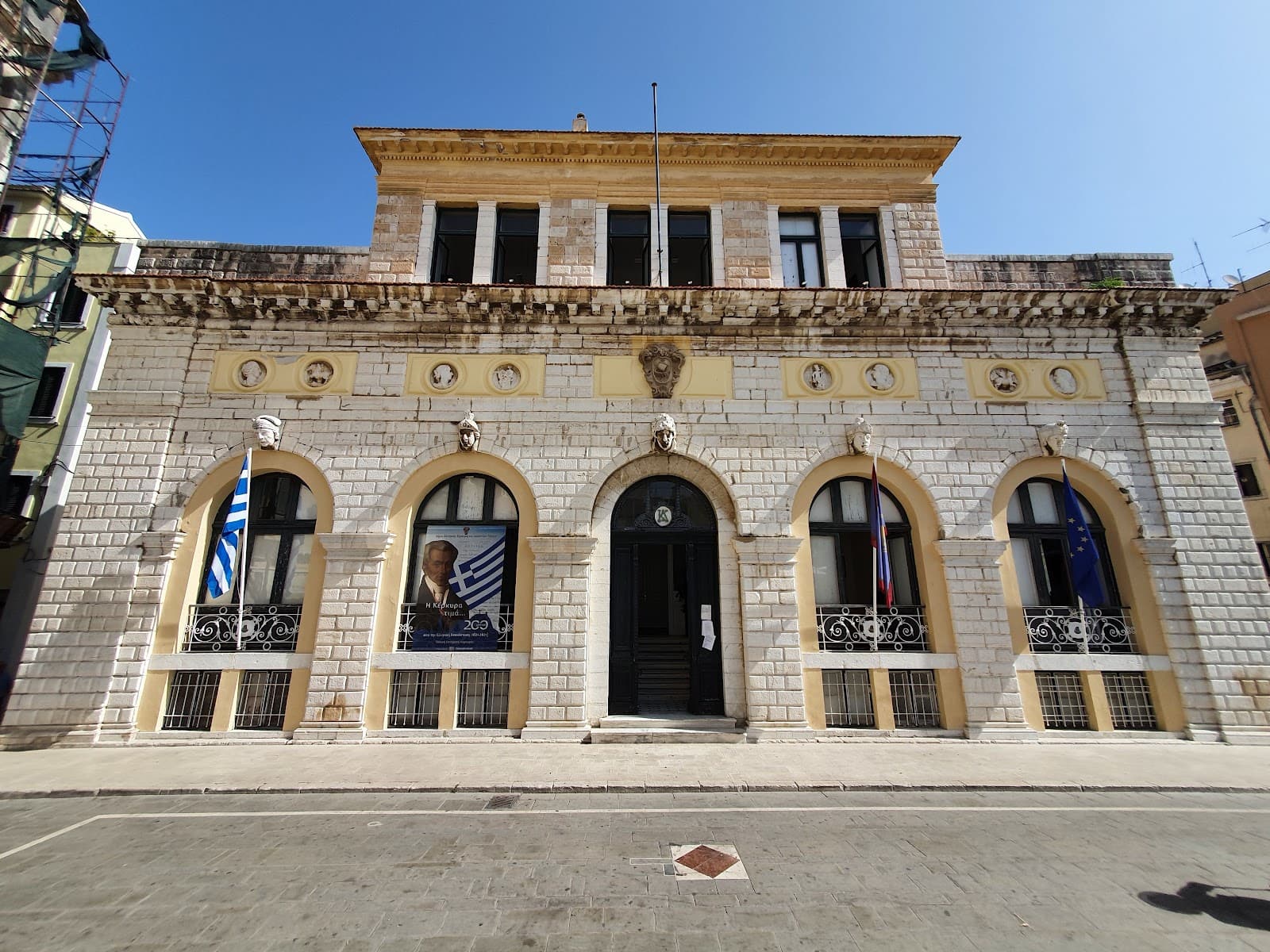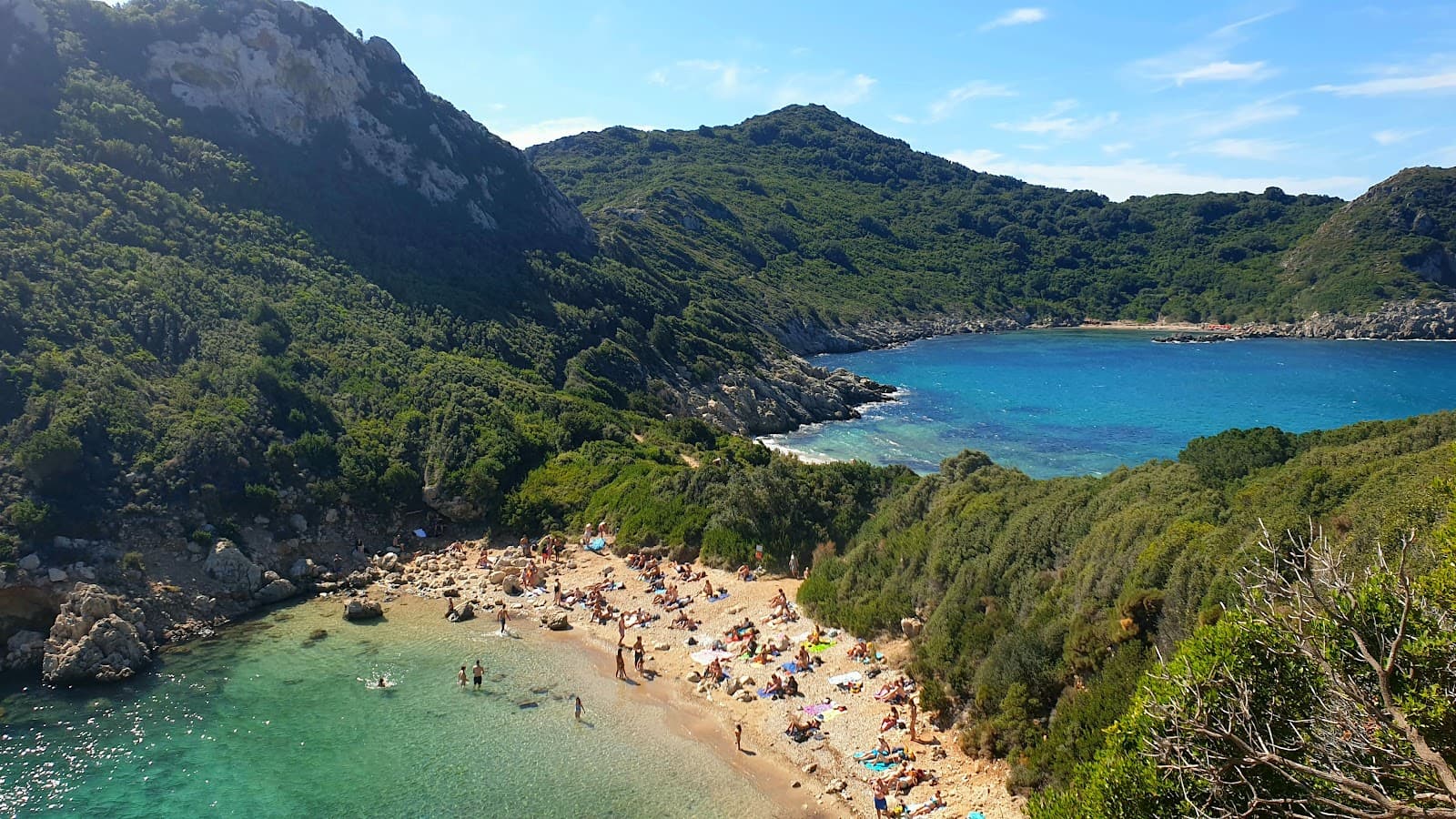
Banknote Museum of Greece
Explore 180 years of Greek monetary history through an impressive collection of banknotes and coins, housed in a stunning 19th-century building.

Highlights
Must-see attractions

Social
From TikTok & Reddit
Best Time
Fewer crowds, more relaxed

Banknote Museum of Greece
Best Time
Fewer crowds, more relaxed

Highlights
Must-see attractions
Explore 180 years of Greek monetary history through an impressive collection of banknotes and coins, housed in a stunning 19th-century building.
"A great free museum which records the rather interesting history of Greece through its currency."

🎯 Free Admission!
Enjoy a rich historical experience without spending a dime. Perfect for budget travelers! :moneywithwings:
📍 Entrance is Tricky
Look for the old Ionian Bank building; the entrance isn't obvious. Ask locals if needed! :round_pushpin:

Highlights
Discover the most iconic attractions and experiences

Ancient Greek Coins
Early Exhibition Halls
Witness the evolution of currency from 650 BC, showcasing the artistry and history of early Greek coinage.

Pre-Euro Banknotes
Main Exhibition Area
Explore a vibrant display of Greek banknotes before the Euro, offering a nostalgic glimpse into past economies.

Historic Ionian Bank Building
Museum Exterior and Interior
Admire the stunning 19th-century architecture that houses this unique collection, a piece of history itself.
Plans like a pro.
Thinks like you
Planning Your Visit
Free Entry, Big History
Finding the Entrance
Best Times
Insider Tips
from TikTok, Instagram & Reddit
🎯 Free Admission!
Enjoy a rich historical experience without spending a dime. Perfect for budget travelers! :moneywithwings:
📍 Entrance is Tricky
Look for the old Ionian Bank building; the entrance isn't obvious. Ask locals if needed! :round_pushpin:
⏱️ Quick Visit
You can see the entire collection in about 30-45 minutes. Great for a short stop! :stopwatch:
📚 Informative Booklets
Take advantage of the multilingual booklets available to enhance your understanding. :book:
Tips
from all over the internet
🎯 Free Admission!
Enjoy a rich historical experience without spending a dime. Perfect for budget travelers! :moneywithwings:
📍 Entrance is Tricky
Look for the old Ionian Bank building; the entrance isn't obvious. Ask locals if needed! :round_pushpin:
⏱️ Quick Visit
You can see the entire collection in about 30-45 minutes. Great for a short stop! :stopwatch:
📚 Informative Booklets
Take advantage of the multilingual booklets available to enhance your understanding. :book:
🗣️ Knowledgeable Staff
Engage with the staff; they are charismatic and offer great insights into the exhibits. :man_teacher:
What Travellers Say
Reviews Summary
Visitors consistently praise the Banknote Museum of Greece as a fascinating and free cultural experience, highlighting its comprehensive collection of Greek currency and the knowledgeable staff. While some find the entrance a bit hard to locate, the historical insights and the beautiful setting within the old Ionian Bank building make it a highly recommended stop in Corfu Town.
"Great free museum which records the rather interesting history of Greece through it’s currency, particularly bank notes. The museum guide was charismatic and knowledgeable and gave a good insight into the exhibition."
acasserole
"Really interesting collection of the history of money in Greece, guy that works there is very knowledgeable and very helpful, definitely worth a visit,shame locals around the corner don't even know it exists! Look for the actual Ionian bank and follow the building until you find the entrance,ot easy to spot."
Raniska Tente
"The Banknote Museum of the Ionian Bank, now known as the Banknote Museum of Alpha Bank, is situated in Corfu Town, Greece. Established in 1981 by the Ionian Bank, the museum is housed in a historic building that once served as the bank's first branch in Corfu. The structure, designed by Corfiote architect Ioannis Chronis around 1840, stands as a testament to the island's rich architectural heritage."
Yarys
What People Like
What People Dislike
Frequently Asked Questions
🚇 🗺️ Getting There
The museum is located in Corfu Town. Visitors often mention it's housed within the historic Ionian Bank building. While specific public transport details aren't widely shared, it's centrally located and likely accessible by local buses or a short walk from the main tourist areas.
Finding the entrance can be a bit challenging as it's not always clearly marked. Look for the distinctive 19th-century Ionian Bank building and follow signs. Some visitors suggest asking locals if you get lost.
Corfu Town is the main hub and is well-connected. You can reach Corfu by ferry from mainland Greece (Igoumenitsa, Patras) or Italy, and by plane to Corfu International Airport (CFU). Once in town, the museum is centrally located.
🎫 🎫 Tickets & Entry
No, the Banknote Museum of Greece is completely free to enter! This makes it a fantastic option for travelers looking for enriching experiences without additional costs.
Specific opening hours can vary, but generally, the museum is open during standard daytime hours on weekdays. It's always a good idea to check for any seasonal changes or specific holiday closures before your visit.
Since admission is free and the museum is relatively small, advance booking is typically not required. You can usually just walk in during opening hours.
Yes, the museum is suitable for all ages. It offers a unique educational experience that can be interesting for both adults and children interested in history and currency.
🎫 🧭 Onsite Experience
Most visitors find that a visit to the Banknote Museum of Greece takes around 30 to 45 minutes to fully explore the exhibits. It's a concise yet informative experience.
The museum showcases a comprehensive collection of Greek paper money and coins spanning approximately 180 years of history, from ancient times up to the introduction of the Euro.
Yes, the explanations for the exhibits are provided in both Greek and English, making the museum accessible and understandable for international visitors.
While not always formally advertised, some visitors have reported engaging with knowledgeable staff who provide insights and a good overview of the exhibition, acting as informal guides.
Photography policies can vary, but generally, personal photography for non-commercial use is often permitted. However, it's best to check for any specific signage or ask staff if you're unsure.
🍽️ 🍽️ Food & Dining
The museum itself does not typically have dining facilities. However, being located in Corfu Town, you'll find numerous cafes, tavernas, and restaurants just a short walk away, offering a wide range of Greek and international cuisine.
Corfu Town offers a delightful culinary scene. You can enjoy traditional Greek dishes, fresh seafood, local Corfiot specialties like Sofrito and Pastitsada, and international options.
📸 📸 Photography
The most photogenic aspects include the historic architecture of the Ionian Bank building itself, and close-ups of the intricate designs on the older Greek banknotes. The display cases can also offer interesting visual compositions.
While many visitors take photos, it's always wise to be respectful and check for any 'no photography' signs. Flash photography is often discouraged to protect the exhibits.
A smartphone with good low-light capabilities or a digital camera with a macro lens would be ideal for capturing the details of the banknotes. The historic building's exterior looks great in natural light.
For Different Travelers
Tailored advice for your travel style
👨👩👧 Families with Kids
While it's not a large, interactive children's museum, the sheer variety of colorful and old-fashioned money can spark curiosity. It's a great opportunity to teach kids about history and different cultures through the tangible medium of currency. The visit is also short enough (around 30-45 minutes) to keep younger attention spans from waning.
💰 Budget Travelers
Combined with its central location in Corfu Town, it’s an easy and enriching addition to any itinerary. You can easily spend an hour or so here, learning about Greek history through its currency, and then continue exploring the town without having spent a single euro on entry fees.
Deep Dives
In-depth insights and expert knowledge
The History of Greek Currency
Beyond just paper money, the museum also displays a selection of coins, providing a broader perspective on Greece's monetary past. The exhibits are thoughtfully curated, allowing you to trace the changes in design, material, and value over centuries. This makes it an invaluable resource for anyone interested in economic history, numismatics, or the tangible story of a nation's wealth.
Many visitors are surprised by the sheer variety and historical depth presented. The museum's location within the historic Ionian Bank building further enhances the experience, immersing you in the very environment where financial transactions once took place. It’s a testament to how currency is not just a medium of exchange but also a carrier of cultural and historical narratives.
Architectural Gem: The Ionian Bank Building
Stepping into the museum means stepping back in time, not just through the currency on display, but also through the very walls that surround you. The building itself tells a story of Corfu's past prosperity and its role as a financial center. Its preservation is a key part of the museum's charm, offering visitors a multi-layered historical experience.
For architecture enthusiasts, the building offers a chance to admire the craftsmanship of 19th-century design. The proportions, the detailing, and the overall ambiance contribute to a memorable visit, making the Banknote Museum of Greece more than just a collection of money – it's a holistic encounter with history and heritage.






Social
from TikTok, Instagram & Reddit